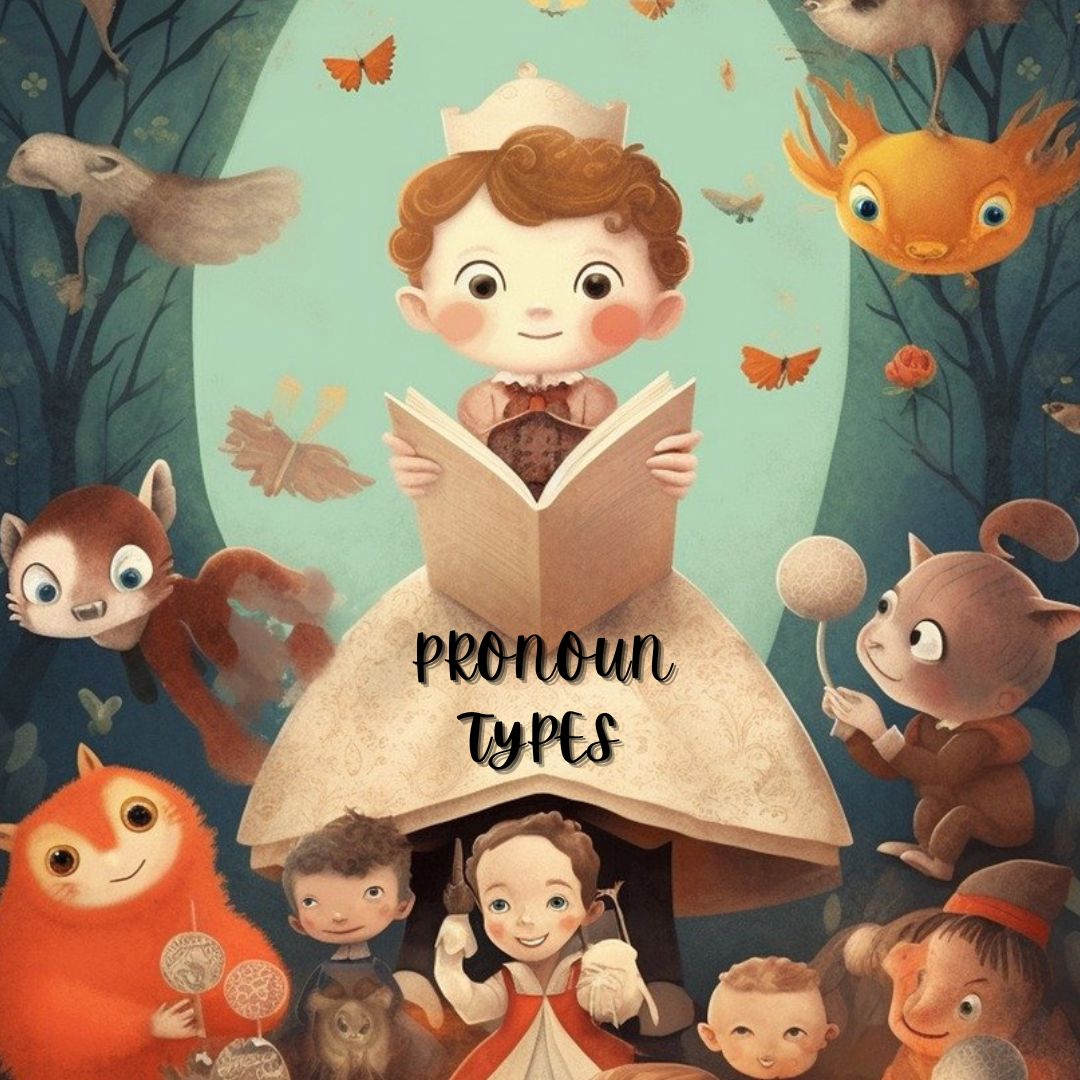The Types of English Pronouns

What are the 8 types of Pronouns?
1. Personal pronouns:
These pronouns refer to specific people or things, and they change based on their role in the sentence.
2. Possessive pronouns
(mine, yours, his, hers, its, ours, theirs)
3. Reflexive pronouns: These pronouns are used when the subject and object of a sentence are the same person or thing. Reflexive pronouns end in -self or -selves (myself, yourself, himself, herself, itself, ourselves, themselves).
4. Demonstrative pronouns: These pronouns point to specific people or things and indicate their location or distance from the speaker. The four demonstrative pronouns are this, that, these, and those.
5. Relative pronouns: These pronouns introduce a subordinate clause and refer back to a noun or pronoun that came before it. Examples of relative pronouns include who, whom, whose, that, and which.
6. Interrogative pronouns: These pronouns are used to ask questions. Examples of interrogative pronouns include: who? whom? whose? what? and which?
7. Indefinite pronouns: These pronouns refer to people or things in general or in an unspecific way. Examples of indefinite pronouns include somebody, anybody, everybody, nothing, something, everyone, and someone.
8. Reciprocal pronouns: These pronouns are used when two or more people or things are acting in a reciprocal manner. Examples of reciprocal pronouns include each other and one another.
The Types of the English Pronouns
What is a Pronoun? The Functions of the English pronouns.